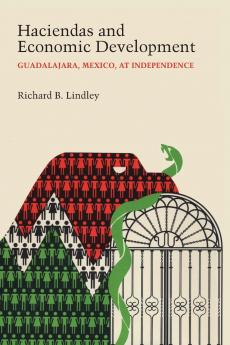English
Paperback
₹2521
₹2741
8.03% OFF
(All inclusive*)
Delivery Options
Please enter pincode to check delivery time.
*COD & Shipping Charges may apply on certain items.
Review final details at checkout.
Looking to place a bulk order? SUBMIT DETAILS
About The Book
Description
Author
<p>Agriculture commerce and mining were the engines that drove New Spain and past historians have treated these economic categories as sociological phenomena as well. For these historians society in eighteenth-century New Spain was comprised on the one hand of creoles feudalistic land barons who were natives of the New World and on the other of peninsulars progressive urban merchants born on the Iberian peninsula. In their view creole-peninsular resentment ultimately led to the wars for independence that took place in the American hemisphere in the early nineteenth century.</p> <p>Richard B. Lindley's study of Guadalajara's wealthy citizens on the eve of independence contradicts this view clearly demonstrating that landowners merchants creoles and peninsulars through intermarriage formed large family enterprises with mixed agricultural commercial and mining interests. These family enterprises subdued potential conflicts of interest between Spaniards and Americans making partners of potential competitors.</p> <p>When the wars for national independence began in 1810 Spain's ability to protect its colonies from outside influence was destroyed. The resultant influx of British trade goods and finance shook the structure of colonial society as abundant British capital quickly reduced the capital shortage that had been the main reason for large-scale diversified family businesses.</p> <p>Elite family enterprises survived but became less traditional and more specialized institutions. This transformation from traditional personalized community relations to modern anonymous corporations with all that it implied for government and productivity constitutes the real revolution that began in 1810.</p>
Delivery Options
Please enter pincode to check delivery time.
*COD & Shipping Charges may apply on certain items.
Review final details at checkout.
Details
ISBN 13
9781477304594
Publication Date
-01-09-1983
Pages
-174
Weight
-244 grams
Dimensions
-152x229x10.19 mm








